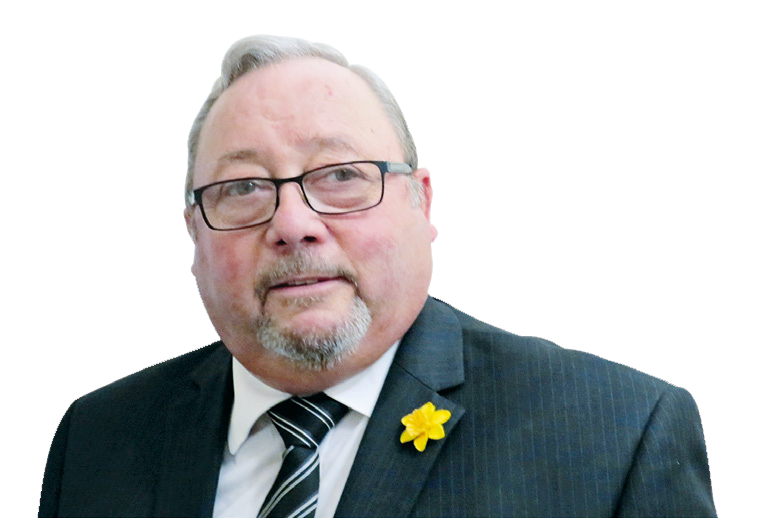Quality not quantity

When associations look at determining their membership many consider the number of members as the defining criteria. However, not so with SAIF, which has always valued quality over quantity when considering the existing membership and new applicants.
This is where the SAIF quality assurance (QA) programme comes into its own and is central in ensuring SAIF members provide the highest quality of service to their clients.
The quality assurance programme
The quality assurance programme has developed over a number of years, using the original Code of Practice as its base and building in various areas of legislation, including the Companies Act, Health and Safety at Work Acts and Environmental Health requirements.
It all starts with recording personal details of the business to ensure the information held at the national office is up to date and complete. It goes on to look at the premises in general, both inside and outside: are the premises in good state of repair; are they clean and tidy; do they have adequate facilities for performing the duties of a funeral director, including private area for speaking with clients, viewing/chapel of rest rooms; preparation area (mortuary); do they have sinks for washing hands; access to hot and cold water; toilets for clients; staff facilities; temperature controlled facilities i.e. refrigeration (these facilities are all mandatory in Scotland); workshop; embalming theatre including sluice, extraction, eye wash and first aid supplies?
It checks adherence to the code of practice: are you providing written estimates and written confirmation to clients; an itemised account; do you have the Code of Practice and price list on display and to take away; do you have acceptable procedures for handling cremated remains, donations, jewellery, flowers; do you have a comprehensive complaints procedure? Do you train your staff and provide staff handbooks?
It also ensures you are compliant with Health and Safety at Work Acts, posters, policies, hazards, training, safe place of working, accident book, fire notices, COSHH (Control of Substances Hazardous to Health) records, asbestos risk assessments, no-smoking signs.
Are you compliant with environmental requirements, disposal of clinical waste and storage of chemicals? Do you comply with the Companies Act for disclosure of ownership?
These are just some of the areas where the QA programme helps you meet your membership and legal requirements in operating your business.
The quality assurance assessor
There are a total of 10 Quality Assurance Assessors, one for Scotland and nine to cover England, Wales and Ireland. They are all experienced funeral directors and some own their own funeral businesses. They are trained in areas of inspection and assessment and are continually kept up to date with changes to legislation affecting your business.
As well as ensuring compliance, they are also a resource for the membership. The Assessors will help in any areas of business compliance you are unsure of; if they do not know the answer they will know where to get it and report back to you. They meet together as a group twice a year to discuss any areas of concern and development.
Future development
The QA programme is continually under review, and it is developed to ensure it recognises changes in the law and areas where legislative departments may be focusing. This is particularly important at the present time as the Scottish Parliament considers legislation for funeral directors.
Together with other members of the SAIF Scottish Executive, the Quality Assessor for Scotland attends Scottish Government Committee meetings discussing the areas for legislation. This enables the Scottish Executive to consider changes to membership criteria to ensure our members will be fully compliant with the future Scottish Government Funeral Director Code of Practice. The principal focus of Natalie McKail, the Scottish Government’s Inspector of Funeral Directors, is currently care of the deceased.
To address possible future requirements, the Scottish Executive has made it mandatory for all Scottish members to have temperature-controlled facilities and mortuary facilities including hot and cold running water within their own premises.
Risk assessment is another area that may be required; what would you do if there was a major long-term power failure, or if your premises were flooded? Do you have contingency plans if you had a serious fire in your premises?
These are just some of the situations you may be required to address. The QA programme will become key in ensuring our members are fully compliant before they are inspected by a Government Inspector. It will become one of the major benefits in membership of SAIF and will give members a clear advantage over any non-member competitors.
The QA programme will therefore continue to develop along the lines of Government requirements and will incorporate areas that the Executive believes will be subject to inspection by the Government Inspectors. Not to do so would be to fail our members.
Tags: assurance, assurer, code of practice, Joseph Murren, quality, Quality Assurance, risk, SAIF, standards